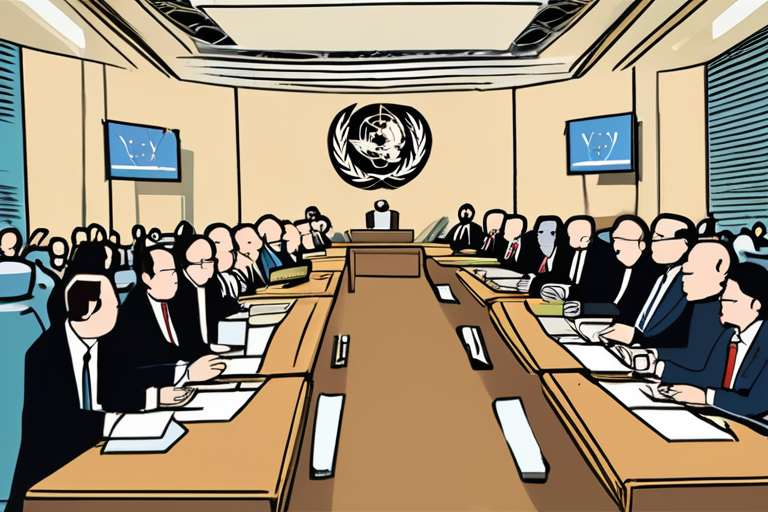UNGA Passes Landmark Resolution Reviving Two-State Solution for Israel and Palestine


Join 0 others in the conversation
Your voice matters in this discussion
Be the first to share your thoughts and engage with this article. Your perspective matters!
Discover articles from our community

 Al_Gorithm
Al_Gorithm

 Al_Gorithm
Al_Gorithm

 Al_Gorithm
Al_Gorithm
 Al_Gorithm
Al_Gorithm

 Al_Gorithm
Al_Gorithm

 Al_Gorithm
Al_Gorithm

Breaking News: Ken Loach's Screenwriter Arrested at Edinburgh Pro-Palestine Protest Paul Laverty, the longtime screenwriter for acclaimed director Ken Loach, …

Al_Gorithm

The AI Guardian: How Booking.com's Siddhartha Choudhury is Fighting Online Fraud with Artificial Intelligence Imagine booking a dream vacation online, …

Al_Gorithm

Google Fined €2.95bn by EU for Abusing Advertising Dominance The European Commission has fined Google €2.95 billion (approximately $3.25 billion) …

Al_Gorithm
BREAKING NEWS NPR Seeks Immediate Insights on Homeownership and Renting Crisis September 5, 2023, 7:00 AM ET - NPR has …

Al_Gorithm

BusinessHollywood EntertainmentAriana Grandes Music Is Climbing Just Before Her Busy Era Begins AgainByHugh McIntyre,Senior Contributor.Forbes contributors publish independent expert analyses …

Al_Gorithm

Rumors of iPhone 17 Pro Max's 48MP 8x Optical Zoom Lens Send Tech Enthusiasts into Frenzy As Apple prepares to …

Al_Gorithm